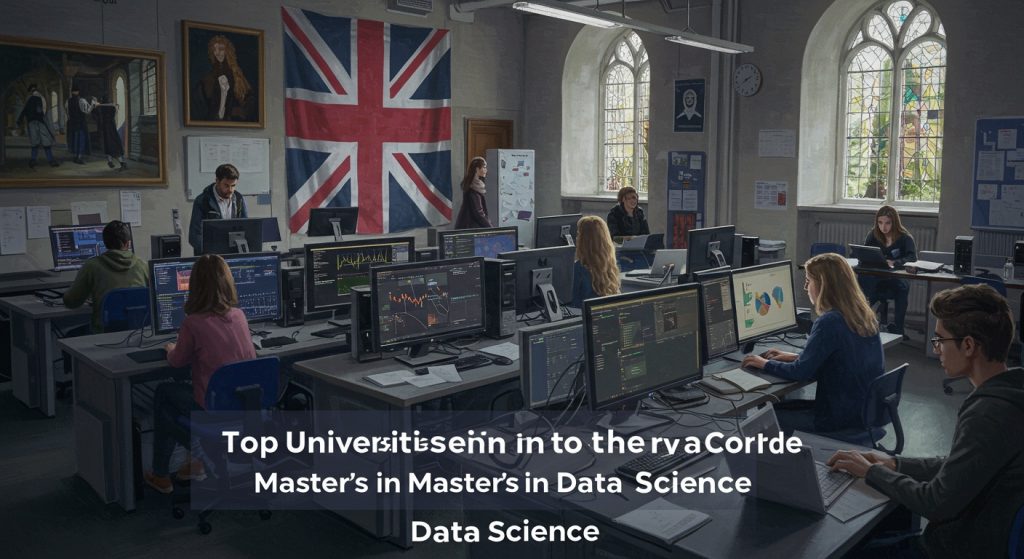Introduction
The digital age has ushered in an unprecedented era of data proliferation. Consequently, businesses across all sectors now rely heavily on data-driven insights to inform strategic decisions, optimize operations, and gain a competitive edge. This rising demand has fueled the rapid growth of data analytics as a crucial field, creating numerous career opportunities for skilled professionals.
Universities are adapting to this evolving landscape by developing and refining their data analytics programs. Furthermore, they are incorporating cutting-edge technologies, real-world case studies, and industry collaborations into their curriculum. Therefore, students are now better equipped to navigate the complexities of data analysis and contribute meaningfully to organizations upon graduation. The focus is on equipping graduates with both technical proficiency and the critical thinking skills necessary to translate raw data into actionable intelligence.
In this blog, we will explore how specific universities are preparing students for these emerging careers in data analytics. We will delve into the unique approaches they employ, the specific skills they emphasize, and the overall effectiveness of their programs in meeting industry needs. Finally, we aim to provide valuable insights for prospective students, current educators, and industry professionals seeking to understand the future of data analytics education.
Universities Preparing Students for Emerging Careers in Data Analytics
Okay, so data analytics. It’s everywhere, right? Businesses are practically drowning in data, but they’re desperate for people who can actually make sense of it all. That’s where data analysts come in, and guess what? Universities are starting to seriously ramp up their programs to meet this crazy demand. Which is great because, you know, jobs! But also, it’s kinda confusing knowing which schools are really leading the pack.
Why Data Analytics is Booming (and Why You Should Care)
Before we dive into specific universities, let’s quickly touch on why data analytics is such a hot career path. Basically, companies are using data to make smarter decisions, predict trends, and ultimately, make more money. From marketing to finance to healthcare, every industry needs data-savvy professionals. And because the field is still relatively new-ish, skilled analysts are in high demand, which often translates to… higher salaries! (Yes, please!).If you are looking to learn about another booming career, take a look at CRISPR Careers Beyond the Bench New Avenues in Biotech.
Key Skills Data Analytics Programs Should Offer
Alright, so what should you actually look for in a data analytics program? It’s not just about knowing how to use Excel. (Although, Excel is still important!).Here are a few key areas to consider:
- Statistical Modeling: Understanding the fundamentals of statistics is crucial. You’ll need to be able to build and interpret models to uncover hidden patterns.
- Programming Languages: Python and R are the industry standards. Make sure the program offers solid training in at least one (preferably both!) .
- Data Visualization: Being able to communicate your findings clearly is essential. Think interactive dashboards and compelling presentations.
- Big Data Technologies: Experience with tools like Hadoop and Spark is a major plus, especially for handling massive datasets.
- Machine Learning: Increasingly, data analytics is incorporating machine learning techniques to automate tasks and make more accurate predictions.
Top Universities Stepping Up Their Data Analytics Game
So, which universities are really nailing it when it comes to preparing students for these roles? While many schools are offering data science-related degrees, some go above and beyond. It’s worth researching their faculty, industry partnerships, and career placement rates. I mean, you wanna know you’ll actually get a job after graduating, right?
Furthermore, consider if the program offers specializations. For example, some schools might specialize in business analytics, focusing on applying data analysis to marketing, finance, or operations. Other programs might be more technically focused, with an emphasis on statistical modeling and machine learning. Therefore, aligning your interests with the program’s focus is really important.
For example, some programs offer a capstone project, which is a fantastic way to gain real-world experience and build your portfolio. During a capstone, students work on a real data analytics challenge for a company, providing them with valuable hands-on experience and the chance to impress potential employers.
Ultimately, the best program for you will depend on your individual goals and background. However, by carefully considering the factors discussed above, you can make an informed decision and set yourself up for a successful career in the exciting field of data analytics. So, good luck, and may your data always be clean!
Conclusion
So, what’s the takeaway? Universities are really stepping up their game, aren’t they? It’s not just about old-school statistics anymore. Instead, they’re crafting programs to help students navigate the crazy world of data analytics. Moreover, they are gearing up for what’s next.
However, it’s more than just learning the tools, though, right? It’s about critical thinking, problem-solving, and, well, being able to actually understand what the data is saying. Therefore, choosing the right university, one that’s forward-thinking and adaptable, is super important for anyone wanting to dive into this field. Check out Decoding the Best Computer Science Programs Globally for related insights!
Ultimately, the universities that embrace change, that work with industry, and that prioritize practical skills are the ones that’ll be churning out the data analysts who will actually, like, shape the future. And that’s kinda awesome.
FAQs
So, I keep hearing about ‘data analytics’ careers being hot. What exactly are these emerging jobs?
Great question! Think of emerging data analytics jobs as roles where you’re not just reporting on past data, but using advanced techniques – like machine learning and AI – to predict the future, optimize processes, and make smarter decisions. We’re talking roles like Data Scientist (of course!) , AI Analyst, Business Intelligence Analyst with a focus on predictive modeling, Marketing Analytics Specialist using cutting-edge tools, and even Ethical AI Officer, making sure all this cool tech is used responsibly. It’s about going beyond the spreadsheets!
Okay, cool. Which universities are actually good at preparing students for this stuff? It feels like everyone’s jumping on the bandwagon.
Totally! It does feel like everyone’s claiming to be a data analytics expert these days. Look for universities with strong programs in statistics, computer science, mathematics, and business analytics. Check out their faculty – are they actively involved in research and industry collaborations? Also, pay attention to their curriculum – does it cover things like machine learning, data visualization, cloud computing for data, and big data technologies like Hadoop and Spark? Schools with dedicated data science institutes or research centers are usually a good bet too. Do some digging beyond just the glossy brochures!
What kind of degrees should I be looking at? Is it just ‘Data Science’ or are there other options?
Data Science is definitely a popular choice, but don’t limit yourself! A degree in Statistics, Mathematics, Computer Science (with a data science focus), Business Analytics, or even Economics can all be excellent pathways. The key is to make sure the program includes coursework in data analysis, machine learning, and statistical modeling. Look for concentrations or specializations within those degrees. Plus, a strong foundation in programming (Python or R, usually) is essential, no matter what your degree is.
What are some practical things universities do to prepare students, beyond just classes?
Excellent point! Real-world experience is key. Look for programs that offer internships, co-op programs, or capstone projects where you can work on real data analytics problems for actual companies. Some universities also have partnerships with industry leaders, giving you access to guest lectures, workshops, and networking opportunities. Hackathons and data science competitions are also great ways to build your skills and portfolio.
Are there specific software or tools I should be familiar with before even applying to these programs?
While not required before applying, getting a head start can be super helpful! Familiarity with Python (and libraries like Pandas, NumPy, Scikit-learn) or R is a huge plus. Experience with data visualization tools like Tableau or Power BI is also valuable. Even just playing around with these tools through online tutorials or free courses can give you a leg up and help you decide if this field is truly for you.
Is a master’s degree necessary to get a good job in data analytics, or can I do it with just a bachelor’s?
It depends on the role and your long-term goals! A bachelor’s degree can definitely get you started, especially in roles like Business Intelligence Analyst or Data Analyst. However, for more advanced roles like Data Scientist or Machine Learning Engineer, a master’s degree is often preferred (and sometimes required). A master’s will give you a deeper understanding of the theoretical foundations and advanced techniques. But don’t feel pressured – gain some experience with a bachelor’s and see where your career takes you!
What skills, outside of the technical stuff, are important for a career in data analytics?
Glad you asked! It’s not all about the code. Strong communication skills are crucial – you need to be able to explain complex data insights to non-technical audiences. Critical thinking and problem-solving skills are also essential for framing business questions and finding the right data to answer them. And don’t forget about teamwork – data analytics is often a collaborative effort. Basically, being able to think strategically, communicate clearly, and work well with others is just as important as knowing your Python from your R!



